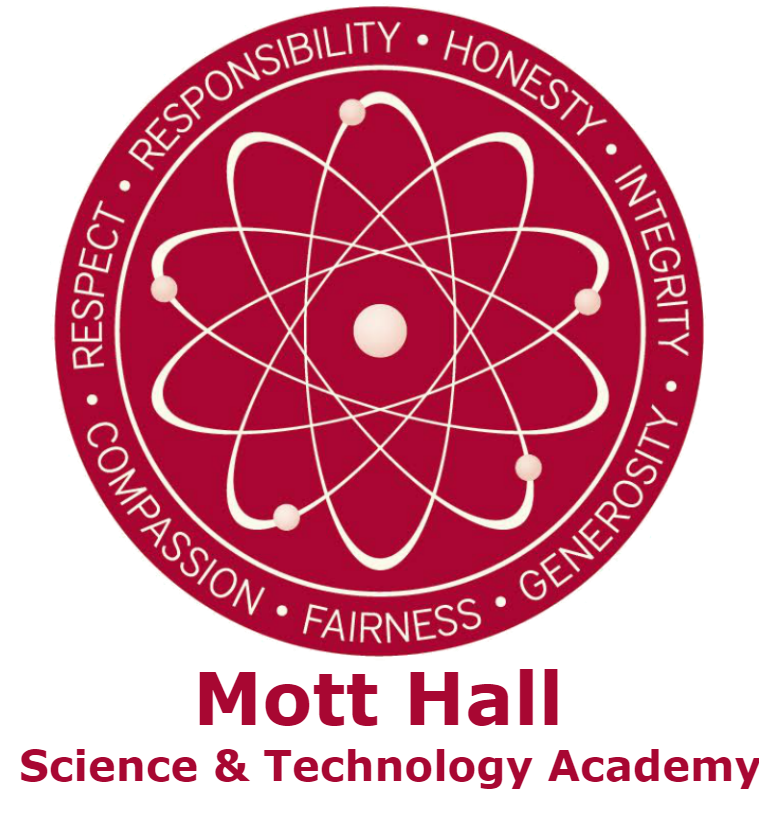
Department Descriptions
Scholars have the opportunity to function as artists and actors, as well as learners of the arts. The goal of the arts department is to develop our scholar’s knowledge of arts and art disciplines, skills in those disciplines, creative thinking, and responses to the art around them. Mott Hall scholars receive both visual and performing arts classes each year of the MYP programme. Heightened awareness of creative thinking helps our scholars to develop their self-reflection skills in all classes and become more self-regulated learners. Across both visual art and theatre classes, scholars will track their progress, explore new ways of thinking, and reflect on their work in their IB process journal.
Individuals and Societies
In order to assist our students’ development into well-rounded, global citizens, we seek to push them to understand and explore issues around the world, both in the past and present. Throughout their years at Mott Hall students develop understandings of various cultures, including the evolution of American culture, and ancient societies. Our IB objectives focus on the development of content knowledge, communication skills, both verbally and written, critical thinking skills, and research skills. Students explore content through many formats, including texts, images, political cartoons, documentaries, and other forms of multimedia. Students are tasked with developing well written arguments supported with evidence and thorough connections. Furthermore, students develop their communication skills through the use of various discussion styles, including Socratic seminars, informal discussions, and philosophical chairs.
Language Acquisition
The language acquisition department goals are to provide students with the ability to communicate in another language and to contribute to mother tongue development. We value students’ identity and cultural heritage. To this end, we aim to promote a broad understanding of different cultures, heritages and their perspectives within global contexts. We support students’ literacy development by aligning language learning with common state benchmarks.
In the past three years and going forward, Language Acquisition: Spanish has focused on the following themes in our units of study:
- Mis amigos y yo
- La escuela
- La comida
- Los pasatiempos
- Fiesta en familia
- La casa
- De compras
- Experiencias
- Medios de comunicación
Language and Literature
The language and literature department aims to provide our students with a balanced exposure to a variety of literature and writing tasks to make them lifelong learners. Over the course of three years in our school, students read Children of Blood and Bone by Tomi Adeyemi, Vietnam: A History of the War, I Am Malala by Malala Yousafzai, The Giver by Lois Lowry, The Omnivore’s Dilemma by Michael Pollan, Purple Hibiscus by Chimamanda Ngozi Adichie, and Fences by Auguest Wilson. Scholars practice writing in a range of genres, such as informational and persuasive essays, poetry, personal narratives, and short stories.
With literature as a platform, students make connections to a diversity of disciplines, cultures, and global situations that have a past and present impact on themselves and others. These connections lead to discussions and problem solving about modern issues such as the refugee experience, society and the formation of identity, human rights, ethical decisions, and immigration.
Mathematics
Through the IB MYP in Mathematics, students will develop the ability to understand and apply appropriate math content and processes to solve particular problems, investigate and describe patterns, communicate mathematical lines of reasoning using appropriate mathematical language in different forms of representation and apply mathematics in real life contexts. Through the Mathematics MYP, students develop skills that support progress and understanding across all content areas. Students will master problem-solving skills that can be used to approach unfamiliar tasks by identifying and interpreting key language and processes, selecting and applying strategies, verifying to explain solutions, and constructing analogous problems. Across all grades, students will increase their knowledge of number sense and relationships to better understand mathematical principles, and transfer their logic and reasoning skills to real- world context.
Sciences
In the Mott Hall Science Department, our goal is to prepare every student to excel in the sciences at top high schools. Students learn science best by doing science; as a result, students are constantly creating models—representations of phenomena that can be used to explain or predict phenomena. When teaching students from a wide array of backgrounds, it is important for them to understand where their place in the world contributes to what they learn and how they can use what they learn to gain deeper understandings of the world around them. Using the experiences of the students is the best way to increase engagement because it shows that you are not only working to understand how they think but also why they think the way they do. The adolescent brain is very plastic and the experiences they receive at this age can either increase interest in the sciences or completely turn them off. Who does not learn best when they can actually see how the item looks, works, and feels? The science team using modeling not only helps teachers, but helps students express themselves in methods that makes sense to them and to be able to contribute their ideas to the world.
Physical Education
Physical Education and Health foster the development of knowledge, skills, and attitudes that will contribute to a student’s balanced and healthy lifestyle. Through various opportunities for active learning, courses in this subject will promote the holistic nature of well-being. Students will have the opportunity to meet the MYP objectives through a high-energy, balanced curriculum. Our units include; the NYC FitnessGram/ Fitness Training, Cooperative Games, Aesthetic Movements, Team Sport.

